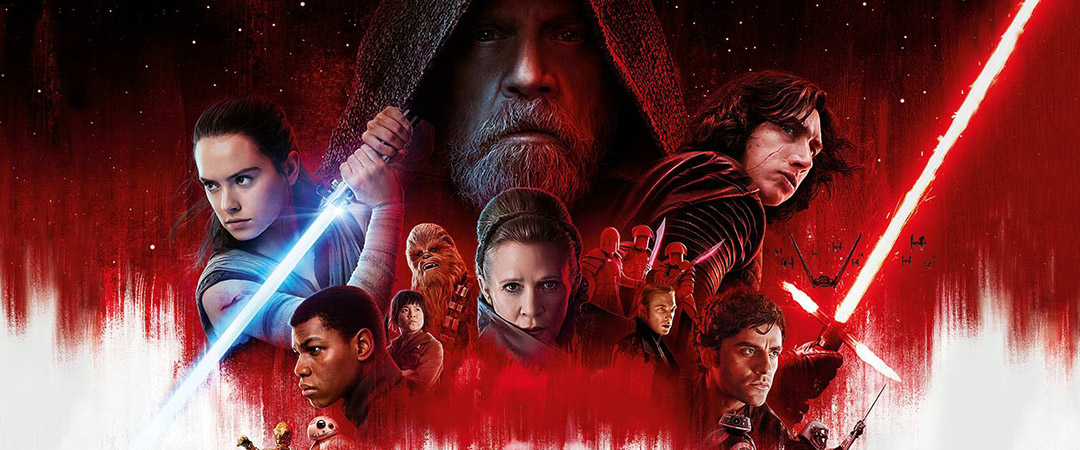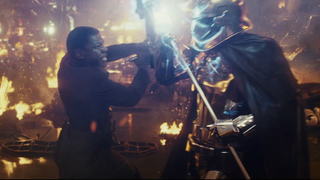Storytelling is tricky to truly master. For one, there has to be a plan connecting everything together. And two, it must be done in such a way that it doesn’t feel manipulative. This is especially challenging for a long-running series, which needs to do the above while setting the groundwork for the grander picture. There are definitely wrong ways to pull this off (see Lost), but there’s also no one way to do it correctly.
Take Star Wars: The Last Jedi. Star Wars is no stranger to narrative inconsistencies, due to the franchise frequently building off of previous installments, but it’s always seemed like there was a plan in place. Even lesser-entries, bad as they are, had a reason for existing, an established goal worth respecting. Unfortunately, this latest film bucked that trend. Despite taking the franchise in a new direction, which I’d argue isn’t a sure-fire guarantee of quality on its own, the film has seen backlash over a few dropped threads from its predecessor and its decision to include a detour on a planet called Canto Bight. I happen to not mind these decisions too much, but I’ll play Devil’s Advocate and explain why I think it’s not fair to dismiss the criticism.
By the way, spoilers.
The first I’ll tackle is the attempts at a new direction. Star Wars: The Last Jedi, right from its opening scene, subverts expectations. Poe Dameron, the loveable pilot of The Resistance from Star Wars: The Force Awakens, is reckless and gets most of his fleet killed. Luke, seen at the end of Star Wars: The Force Awakens, immediately chucks his prized lightsaber off a cliff in his first scene. Even Snoke, built-up to be another Emperor, is defeated by Kylo Ren, only for Kylo Ren to shock Rey and usurp the title of Supreme Leader shortly after the regime change. These are legitimately new and surprising decisions for an over 40 year-old franchise.
But is “new and surprising” necessarily good for Star Wars? Remember, the oft-maligned prequels introduced new and surprising elements too: the introduction of political banter was new, and Anakin’s descent to The Dark Side was surprising. That doesn’t, however, mean that these inclusions were good. And they shouldn’t be expected to, either. It’s a case of “different =/= better”, and it’s important that people understand that.
Fortunately, these decisions do work in the movie’s favour. Remember, Star Wars is over 40 years old. Even if you remove the “what ain’t broke, don’t fix” mantra so many people love touting, or that, to paraphrase George Lucas, Star Wars is like poetry and, therefore, rhymes, there’s a point where retreading too much can be a bad sign. It’s one of the many ill-founded complaints detractors lobbed at Star Wars: The Force Awakens, and it was used to reverse effect here. To paraphrase Jeremy Jahns in a YouTube video on the film, “It’s all about The Goldilocks Effect”.
That said, I do think there’s no real Goldilocks Effect with some Star Wars fans. The franchise is so deeply-rooted in nostalgia, and their hatred of Disney’s so strong, that they’d complain regardless. I don’t think Star Wars fans would be truly satisfied even if a movie found that balance, essentially.
The dropped threads are included here. Star Wars: The Force Awakens built up real questions and potential lore for future movies to address: who are Rey’s parents? Who’s Snoke? Why did Kylo Ren turn evil? And, most-importantly, how did Maz Kanata acquire Luke’s old lightsaber from Cloud City?
How does Star Wars: The Last Jedi address these questions? By ignoring the questions. To be fair, some of the answers are fine, like Rey’s parents being nobodies, but others rub me the wrong way. I know Snoke isn’t important, and that The Emperor originally had no backstory either, but so what? The Emperor sucked until the prequels anyway, and a simple acknowledgement of who Snoke was would’ve sufficed. Also, Luke’s lightsaber was the laziest part of Star Wars: The Force Awakens, and not addressing that irks me.
This is the biggest disconnect between fans and detractors. On one hand, not every franchise needs Harry Potter-levels of Rube-Goldberg connectivity, that’s asking too much. But, on the other hand, it’s ridiculous to bring up major questions, then drop them Damon Lindelof-style. Even if the question’s more important than the answer, there’s a fine line between creating intrigue through ambiguity and laziness. Some of these answers fall into the latter category.
Fortunately, I can forgive it somewhat because the Star Wars franchise is coded with laziness and false-leads. The initial cut of the original film was a mess, saved at the last-second by rush-edits and decisions. The sequel’s original script was trashed, with a new director, the late-Irving Kershner, replacing George Lucas in the end. The trilogy’s finale, arguably its worst entry, had plenty of padding and two anticlimactic deaths, the second being my biggest gripe as a whole. And the prequels were guilty of many contradictions and retcons, the most-egregious being Midichlorians.
Let’s address Canto Bight. It’s a detour in the film where Finn and Rose are dispatched to find a secret codebreaker at a casino. They end up getting arrested, find another codebreaker in prison and escape on alien horses. They then arrive at The First Order’s flagship destroyer, whereupon the codebreaker betrays them in time for everything to go crazy. It’s a subplot that I like, since it deals with classism, but it’s received the biggest split reaction of everything that people were split on.
I get it: it feels tacked-on. The social commentary about the elites trouncing on the poor feels out of left-field. It distracts from the main story. It goes on for too long. And it ends up being a pointless distraction.
I also get the defence for it. Not only is it thematically in-line with Star Wars in general, it’s also a fun way to explore a new side of the universe’s lore. It also builds Rose and Finn’s characters, and its pointlessness is kinda the point. And given the weird detours Star Wars has gone through in its history, both show and movie-wise, it’s not the most-outlandish part of the mythos either. So I’m cool with it existing.
But I think that, in an attempt to defend it, we mistake the forest for the trees. Star Wars has had some weird detours, Star Wars Ep. VI: Return of the Jedi’s opening act qualifies as one, but they usually lead to something. Canto Bight doesn’t lead to anything until the end of the movie, and that can be jarring for those not patient enough to endure. Also, while not everything needs to be a Rube-Goldberg machine, there’s a difference between breaking conventions because there’s something fun/meaningful to say, and simply diverging from structure because you want to. The former is interesting, the latter, again, lazy, and that’s an important distinction.
That’s really the problem in the discourse surrounding Star Wars: The Last Jedi: there are many points of criticism that are irrelevant, like how Luke failing Kylo Ren is considered to be a flaw, but some of the complaints are, in fact, valid…from a certain point of view. It’s not enough to brush them off as “irrelevant whining”. Especially when they’re not.
Do I love this movie regardless? Yeah. It has its moments of wasted potential, and Carrie Fisher is, once again, underutilized, but more of it clicked than didn’t. And I liked how it was bold enough to try new ideas. But it’s not perfect, and the sooner people recognize that, the better.
I’m also not sure if I liked it more or less than Star Wars: The Force Awakens, but I guess time will tell…




No comments:
Post a Comment